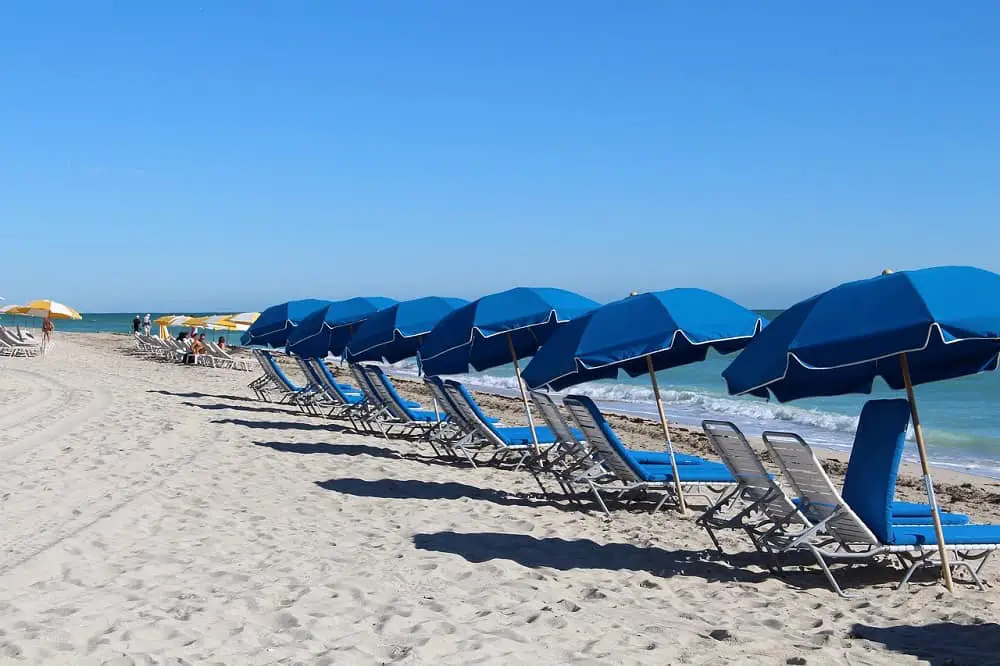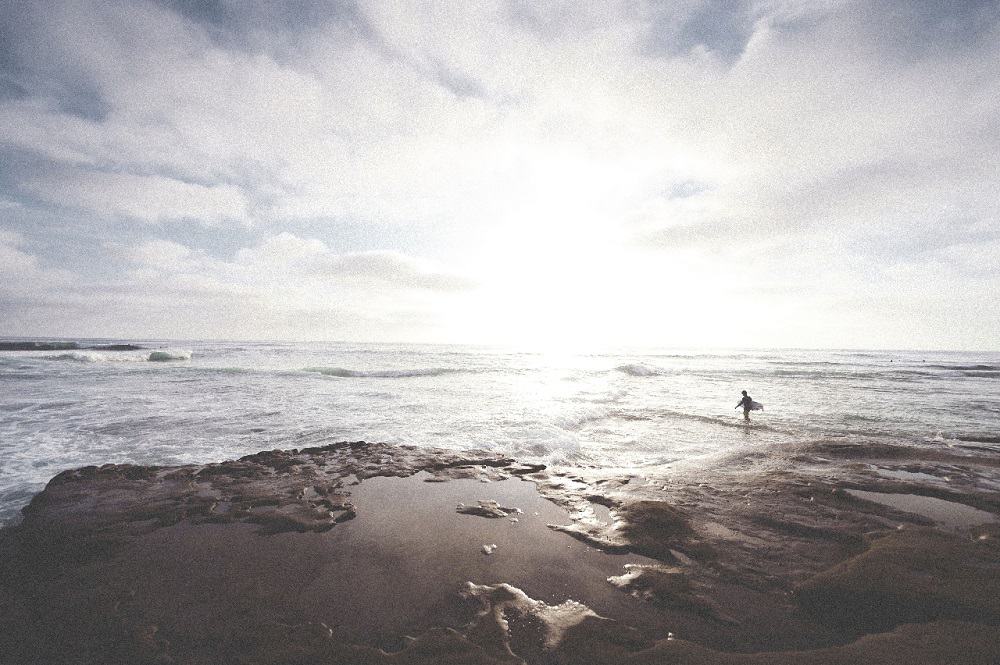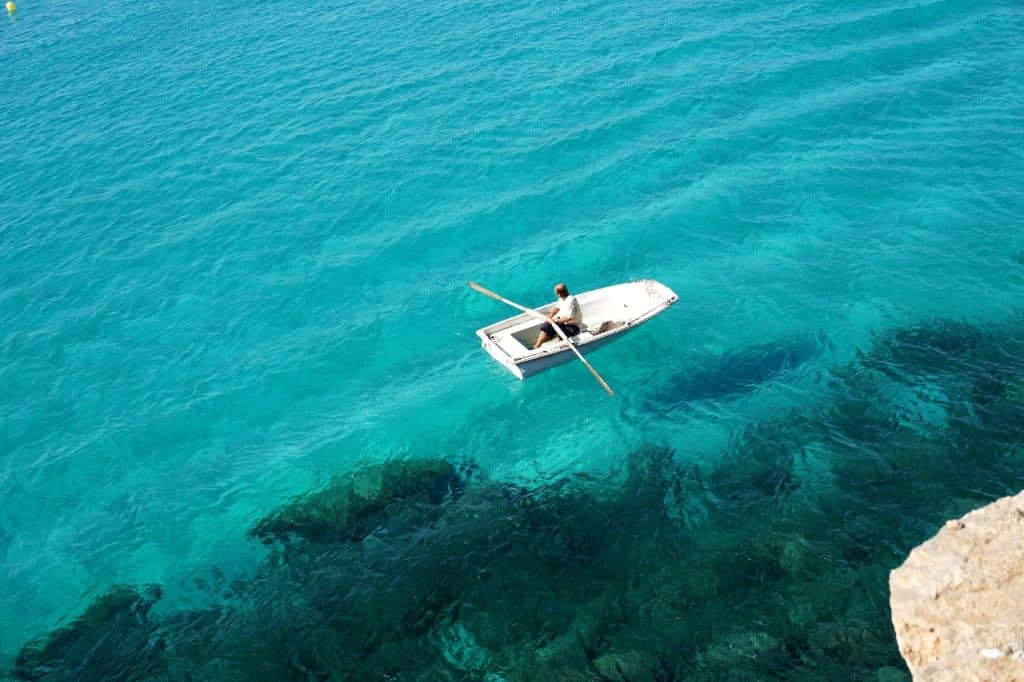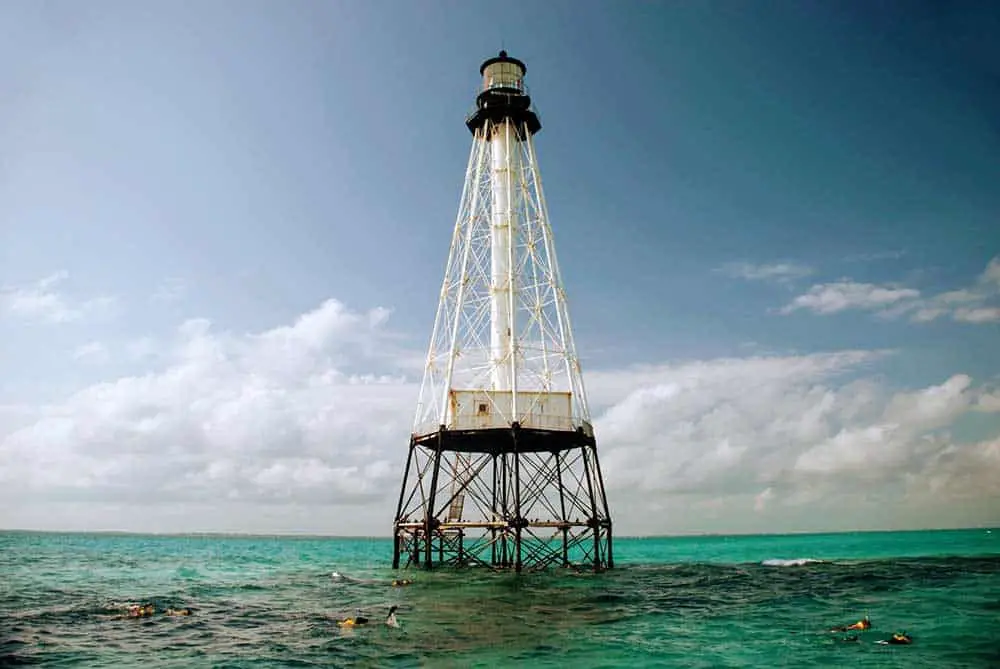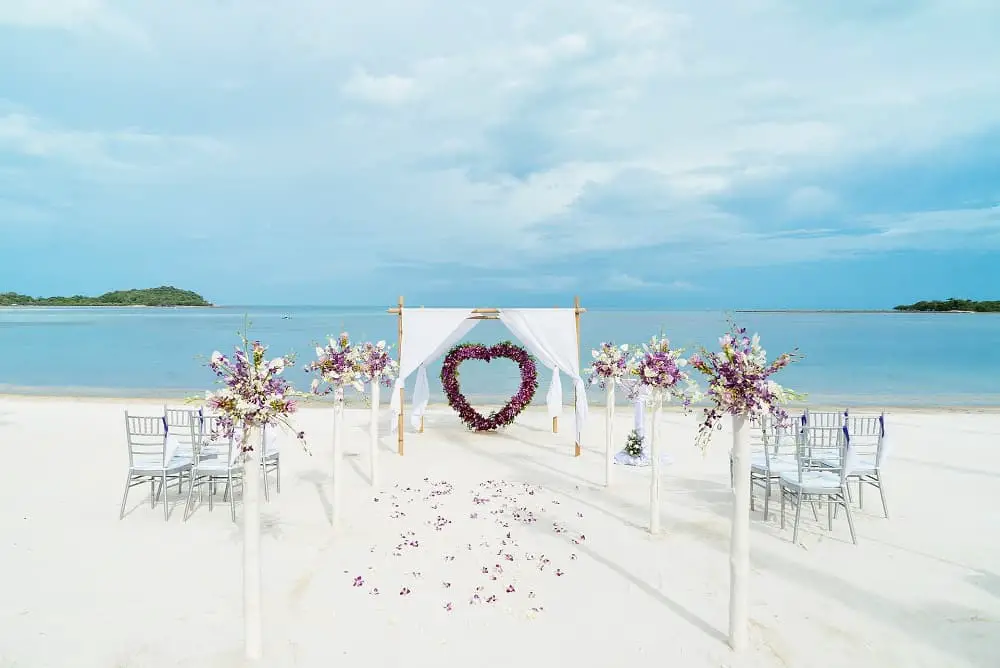Picture this: you’re lying on a pristine beach in the Sunshine State, feeling the gentle caress of warm sand beneath you, and listening to the soothing sounds of crashing waves. The sun is slowly setting, painting the sky with vibrant hues of orange and pink. As night falls, a thought crosses your mind – can I sleep on the beach in Florida?
Can I truly stretch out and slumber peacefully on this slice of paradise?
Well, my curious friend, let’s dive into the magical world of beach sleeping etiquette in Florida. So, grab your flip-flops and sunscreen because we’re about to dive into this sandy topic with a dash of wit and a sprinkle of beachy wisdom.
So sit back (not literally on the sand), relax (unless there’s a crab crawling up your leg), and let’s find out if slumbering under the stars is possible in this tropical paradise.
Florida’s beaches are undeniably enchanting; they draw millions of visitors each year who seek solace in their beauty. But as with any captivating destination, there are rules to be followed and questions that need answers.
Although there are a number of beach communities that have no sleeping regulations, it is still illegal to sleep on the beach in Florida.
In fact, it is even illegal to set up an enclosed tent at night.
This is considered trespassing and can result in a fine of $500 or up to 60 days in jail.
Can I camp on the beach in Florida?
Are you looking for a tropical destination that’s full of attractions? Florida is located in the southeastern United States and has hundreds of miles of coastline.
Miami, for example, is a diverse city with Latin-American influences, an excellent art scene, and an upscale South Beach. Orlando, meanwhile, is famous for its theme parks, including Walt Disney World.
Many public Florida beaches are open all day. However, you’ll need to check with the local jurisdiction to find out if you’re allowed to walk on the beach at night.
The state and federal laws governing beach camping vary. You also need to consider your safety when walking on the beach in the dark.
Fortunately, there are numerous campgrounds along Florida’s coastline. Many are located just steps away from the beach and have oceanfront views.
However, camping on the beach is not allowed between May 1st and October 31st due to turtle nesting season. In addition, no lights are allowed on the beach from May 1st to October 31st.
Campgrounds in Florida are often very family-friendly.
They are usually located near the beach and surrounded by greenery and have amenities like bike trails, fishing spots, and wildlife. Some campgrounds also have grills, water, electricity, and a dump station. Many also allow tents and RVs.
While tent camping on Florida beaches is not new, it is not legal. Many Florida beaches do not allow camping overnight, and you should make sure that you follow all the rules of the campground.
Fortunately, there are several state forests where you can set up a tent and enjoy the beautiful Florida scenery. The state forests have designated 90 camping areas that minimize the impact on the environment.
Florida beaches are popular during the summer months and draw millions of tourists during the day. However, camping on the beach is an opportunity to get close to nature and enjoy a peaceful night’s sleep in the sand.
Many campgrounds are on or near the beach, and it is highly recommended to make reservations months in advance.
Florida beaches are often populated with wildlife, so be prepared for the unexpected.
You’ll need a first aid kit, insect repellent, and antihistamines for poison ivy. You’ll also need bandages, medical scissors, and an emergency contact list.
There are also campgrounds on Florida’s barrier islands, which are surrounded by nature, and can be a great place for camping!
While Florida beaches may have strict regulations about camping, they are still ideal for a great vacation. You can explore the wilderness and take a break from the stresses of everyday life.
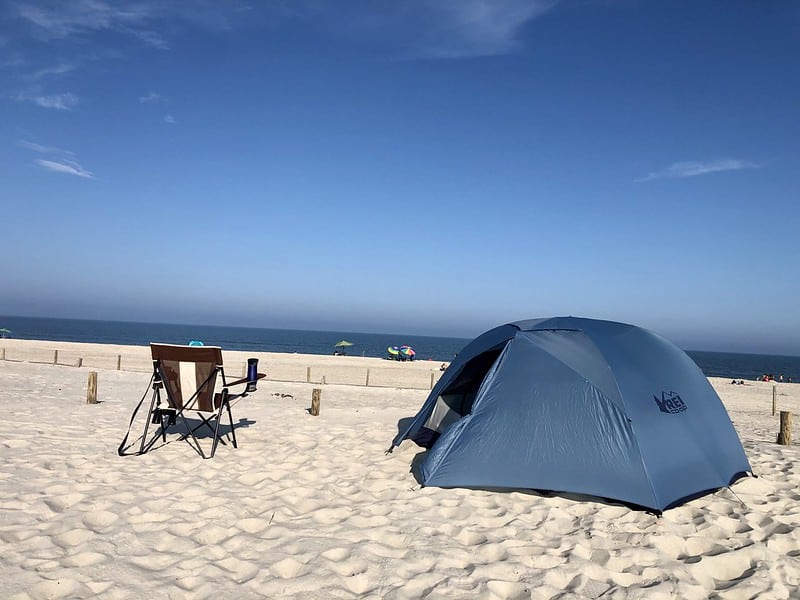
The Gulf Islands National Seashore is one of the rare places in Florida where you can camp on the beach.
This island is known for its manatees and wildlife, and camping on the beach is an excellent way to observe them. You can even watch sunrises from here. Camping here requires a backcountry camping permit, which is available from the Everglades National Park visitor center.
Another area where you can camp on the beach is Gamble Rogers State Recreation Area. It is located directly on the ocean and offers RV campsites with raised beach platforms.
The campground is a picturesque place to enjoy water activities or hike through nature trails. There are also several trails nearby where you can hike, enjoy nature or take a short trek.
Tierra Verde, Florida is another great location for beach camping. You can also find the Fort De Soto Campground, which is located on an island in Tampa Bay.
Whether you want to enjoy a quiet, peaceful place, or enjoy a sunset in a warm Florida sunset, you will be able to find the perfect location.
Where Can You Sleep For Free in Florida?
Florida is a state that bans sleeping in cars, though it is possible in some places. In the state’s state capital, Tallahassee, it is even illegal to sleep in a vehicle on the highway shoulder, which is usually reserved for emergency vehicles.
Some cities, such as Key West, are even trying to increase tourism by banning sleeping in a car.
You can get arrested for a DUI, even if you are not in motion.
1. Haulover Beach
Haulover Park Beach is located in Miami Beach, Florida. The area has a few different hotels that don’t allow pets and charge a resort fee of $26 per night. The fee includes WiFi, access to the beach, and an exercise room.
The nearest airports are Fort Lauderdale-Hollywood International Airport and Port Everglades Cruise Terminal. Both airports are within seven miles.
You can also find free camping sites along the beach. For those who plan to drive down to Florida, Haulover Beach is a convenient place to stay while visiting.
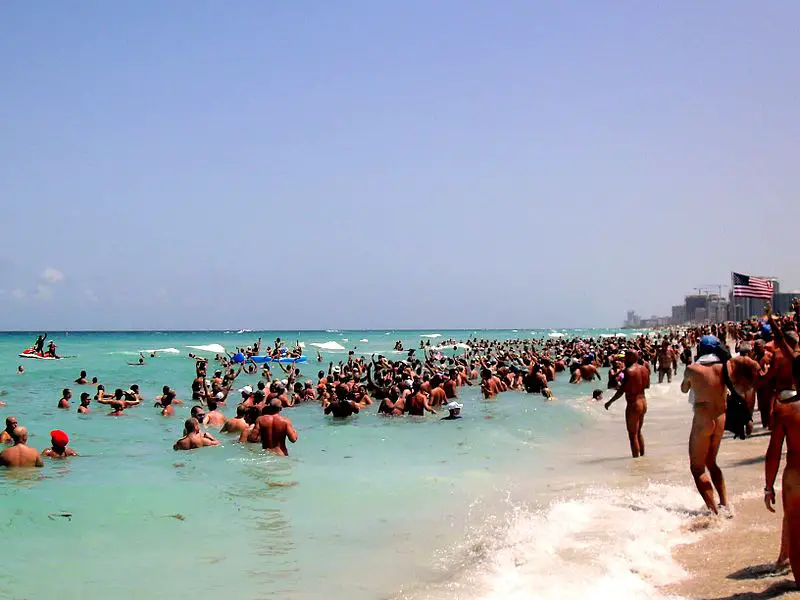
Haulover Beach is a world-famous naturist beach. It has ample parking, well-maintained restrooms and showers, concession stands, and a friendly atmosphere.
While most of Florida’s natural beaches are far from major cities, Haulover Beach is easily accessible.
Haulover Beach is a great place for swimming and surfing. However, you cannot use flotation devices while surfing here.
There is also a bike trail along the beach. You can rent a bike from Electribike Miami from 10 a.m. to 6 p.m. The beach is also popular for kite flying and fishing.
3. Cayo Costa State Park
Cayo Costa State Park is a state park in Florida located on the island of Cayo Costa. The island is 12 miles west of Cape Coral and just south of Boca Grande. You can reach the island by charter boat, ferry, or helicopter.
The state park offers cabins and tent camping areas. You can also camp at the main “day use” area in the northern part of the island. There are also trams that will take you to this area. It’s a great way to see the island while avoiding crowds and driving.
Cayo Costa State Park has some of the best beaches in Florida. It’s a perfect spot for a family vacation or a romantic getaway. It’s off the beaten path and offers rustic accommodations. You can also hike and explore the surrounding forests.
Cayo Costa State Park has cabins that sleep up to six people and are close to showers and bathrooms. There is a small convenience store that sells firewood and ice cream treats.
There’s also wifi, though it’s limited. The park also offers tent camping for up to 8 people.
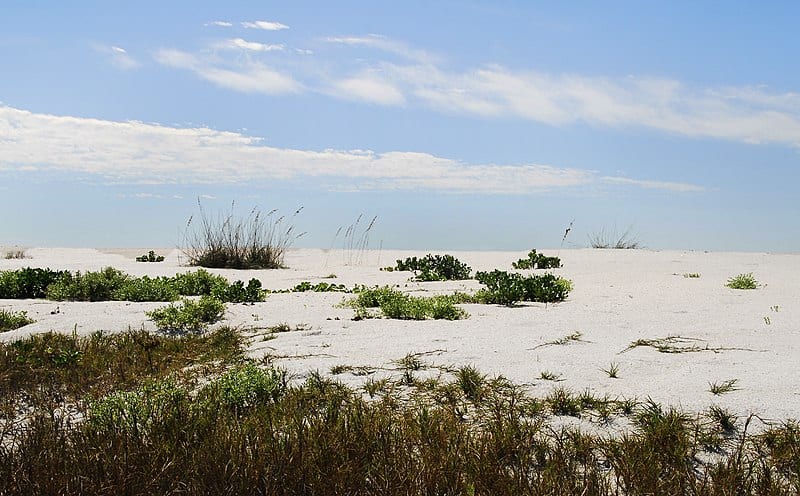
Cayo Costa State Park is located on an unspoiled barrier island 12 miles west of Cape Coral in Lee County. Visitors can access it by boat, charter boat, or helicopter.
It has beautiful beaches and unique vegetation. Cayo Costa has a long dune system that fronts the Gulf of Mexico. The island is a perfect destination for camping, with its natural wilderness and remoteness.
You can find cabins for rent or even camp in the tent campground. If you decide to go to Cayo Costa, you can explore its nine miles of beaches and the many miles of interconnecting trails.
Camping is free at Cayo Costa State Park, but you should pay a $2.00 day-use fee, separate from the shuttle service.
If you don’t have a boat, you can get to Cayo Costa State Park by ferry. Ferry service to the island is provided by Captiva Cruises.
If you plan on staying overnight, you can pack your gear on the ferry and travel the next day. Be sure to pack only 50 pounds of gear for each person.
The park also offers boat and primitive camping options. Primitive campsites have picnic tables and grills, while boat camping can be done on the dock.
There are hammock sites in certain areas, but they’re not available for everyone. The park also offers many activities, including snorkeling and fishing.
4. Baptist Lake Dispersed Camping
Baptist Lake Dispersed Camping in Florida is a wonderful outdoor recreational option. Located in the Ocala National Forest, the campground offers a number of attractions.
You can go horseback riding, bowling, and access the water at Gator Bay Marina. There are also picnic tables and fire pits for campers. The campground is open year-round.
The Northwest Florida Water Management District offers free camping permits for visitors. Make sure to check the rules and regulations for dispersed camping.
There are seasonal roads that may not be well-maintained. The area around Florida River Island is popular among campers, but the bridge may be closed during high-water events.
Ah, Florida – the land of sunshine, stunning coastlines, and an undeniable allure that draws people from all corners of the globe. It’s a place where dreams are made… unless you dream of catching some Zzzs on the beach.
While the idea of sleeping on a beach in Florida may seem idyllic and romantic, it is important to consider the potential challenges and risks involved.
From the intrusion of curious wildlife to unpredictable weather patterns, there are numerous factors that can disrupt your peaceful slumber.
Additionally, it is essential to respect local regulations and ordinances that may prohibit or restrict overnight stays on public beaches.
Instead, why not explore alternative options such as camping grounds or affordable accommodations nearby?
Remember, a good night’s sleep is paramount for enjoying all that Florida has to offer. So let’s be smart about our beach dreams and find a cozy spot where we can unwind without compromising safety or disturbing others.
Sweet dreams, fellow sun-seekers!
You May Also Like:

